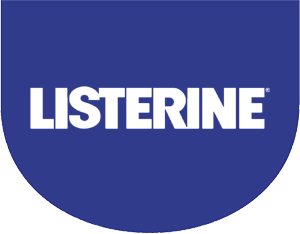Article

Infection control has been a central issue in dentistry for more than 35 years. Compliance today is demanding because governmental regulations and guidelines have progressively become more complex. Also, reports of patient-to-patient disease transmission related to infection control breaches in medical and dental facilities have increased public awareness and concern.
All dental settings, regardless of the level of care provided, must make infection control a priority and should be equipped to observe Standard Precautions and other infection prevention recommendations contained in Centers for Disease Control and Prevention's Guidelines for Infection Control in Dental Health-Care Settings 2003.1
In March 2016, CDC published its Summary of Infection Prevention Practices in Dental Settings: Basic Expectations for Safe Care. It includes several recommendations and information published since 2003 plus an assessment checklist to evaluate practice compliance.2
One of the fundamental elements needed to prevent transmission of infectious agents is application of effective administrative measures. This includes a recommendation that every dental practice has a written exposure control plan and to assign at least one person trained (or willing to be trained) to be an infection control co-ordinator (ICC).2
ICCs work under the guidance of their employers and can be any employee in the practice. The CDC indicates that the ICC's main responsibility is to co-ordinate the practice's safety program, which includes infection control compliance on a day-by-day basis. However, the ultimate responsibility for compliance remains with the employer.2,3,4
An ICC must have a basic understanding of microbiology, pathways of disease transmission, tenets of infection control and the safety procedures and equipment used (Table 1). He/she must also be familiar with applicable federal, state and local governmental regulations. Initially, the ICC may need additional initial training and continuing education to keep current.3,4,5
|
|
The ICC serves as the infection control contact point for both practice employees and patients. He/she is the practice's primary information resource, always looking for gaps and outdated materials.
The ICC establishes and maintains legal compliance by obtaining all required licenses, permits and certifications. Also, assuring and/or providing initial, annual and as-per-need employee education and training, so that employees understand all health and safety policies, plans and procedures. The ICC is a record-keeper, maintaining compliance paperwork. To be complete, compliance must be monitored by observation, checklists and a generation of reports.3,4,5,6
Another important ICC function is managing infection control equipment and supplies. He/she develops contacts with companies that provide health and safety products and information. The ICC also provides training for new health and safety materials and ensures that equipment and supplies (eg hand hygiene products, safer devices to reduce percutaneous injuries and personal protective equipment) are available.2,3,4,5,6
The ICC is responsible for developing written infection prevention policies and procedures based on evidencebased guidelines, regulations or standards. Policies and procedures should be tailored to the dental setting and re-assessed on a regular basis (eg annually) or according to state or federal requirements. Development should take into consideration the types of services provided by the practice and the patient population served. In addition, all dental settings should have policies and protocols for early detection and management of potentially infectious people at initial points of patient encounter.2
It is important for the employer to work with the ICC to develop a safety mission statement and to set safety goals (objectives). Meaningful objectives must have measurable outcomes. Meeting stated objectives should be expressed in concrete terms (eg 100% compliance in wearing protective eyewear). After a period of orientation, the ICC can then undertake fully his or her managerial duties.3,4,6
The new ICC should be formally introduced. This would be an ideal time to describe the activities that the ICC will be performing. It is imperative to recognize the co-ordinator's authority and to present, in written form, the due processes that will be applied to cases of non-compliance. The amount of time dedicated to safety issues are likely to vary each week. However, significant release time, especially during the first few months, must be afforded the new ICC. Infection control duties should not be added to the usually full list of other responsibilities.3,4,6
A separate area (ideally a room with a door) should be reserved for safety activities and record-keeping. It is imperative that the co-ordinator be given significant latitude and power concerning health and safety issues. The correct person must be capable of handling supervisory authority. Employers must be aware of the ICC's performance, yet must not undermine his or her leadership concerning safety issues. However, the ultimate responsibility for workplace safety rests with the employer, but the ICC can handle many, if not most, of the required activities.3,4,6

